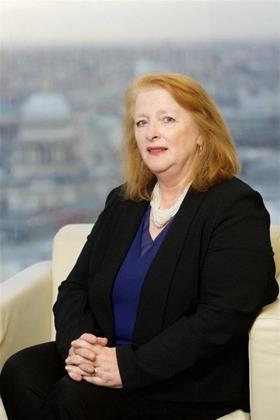National Pro Bono Week is a perfect occasion on which to pause and reflect on what pro bono work we have done over the last year, the extent to which we have been able to contribute to helping our clients or focusing attention on important societal issues, and how we can improve what we do to achieve our pro bono goals.

Solicitors frequently bemoan the poor state of access to justice in England and Wales. Legal aid has been cut to the bone to the point where it is now non-existent for all practical purposes except in a few narrow areas of law. More and more individuals are in need of assistance to deal with all manner of legal issues - from denial of benefits claims to immigration applications and private disputes. Charities require expert assistance which they can ill afford to navigate the complexities of employment laws, privacy regulations and intellectual property rights. And then there are the cases where important public interests are at stake.
Many law firms have vibrant pro bono practices, offering legal services at no cost to individuals and organisations who meet certain criteria. My own firm, Arnold & Porter, is rightfully proud of the firm’s long-standing commitment to pro bono work. In the US our pro bono work has ranged from acting for the victims of Senator McCarthy’s anti-communist campaigns in the 1950s, to supporting Black Lives Matter against the actions of the administration of President Trump in more recent years. That tradition has made the transition across the Atlantic, and in London we work actively with a range of organisations and individuals to pursue cases that are often life-changing for individuals, or which assist charitable organisations, or promote important public interests.
All good solicitors have developed a range of skills including gathering and organising factual evidence, interviewing witnesses, and drafting persuasive submissions, but few of us in commercial firms know much about the law and regulations of benefits, housing and immigration, which is where there is the greatest need for pro bono assistance to individuals. Several outstanding organisations exist to bridge that gap by providing technical expertise in these areas of law, advising and guiding our lawyers as they work on these cases. Kids in Need of Defense (KiND) is a prime example. Their focus is on acting for children who have spent their whole lives in the UK to regularise their immigration status. KiND employs specialists who train and supervise lawyers like us who have little or no expertise in immigration law so that we are in a position to navigate the labyrinthine immigration process to make the necessary applications. Similarly, the Tower Hamlets Law Centre guides us through benefits or housing law issues so that we are well placed to take on cases in those areas.
There are a number of pro bono networks in the UK which connect lawyers to projects in a range of areas - TrustLaw and The UK Collaborative Plan fall into this category. Pro Bono Connect is a network which focuses on pairing up counsel and solicitors to take on pro bono litigation cases. And then there are NGOs and charities with a particular focus on social change or protecting human rights, including the International Lesbian, Gay, Bisexual, Trans and Intersex Association (ILGA), PILnet, and the Center for Reproductive Rights. Each of these organisations looks to the legal community to work with them on a pro bono basis.
Lawyers in our firm are required to devote a minimum of 20 hours per year to pro bono work. Many do far, far more than this. Why? So many reasons. It is good for society and helps to bridge the gap that has made access to justice so much more challenging in recent years. It is good for the individuals we are able to help - the disabled person whose benefits are restored; the child who has lived in the UK all of their life who finally wins a passport or leave to remain and escapes the constant threat of being deported. It is good for human rights when we make a small contribution to improving conditions for a disadvantaged group. And it is good for the lawyers who contribute their time and efforts to these cases. They learn to apply their skills in an entirely new context; they make new connections to other professionals; and, perhaps most importantly, they have the huge satisfaction of knowing they have made an important difference.
That is why pro bono matters. To all of us.
Jane Wessel is a partner in the London office of Arnold & Porter Kaye Scholer (UK) LLP where she is head of competition litigation and leads the pro bono practice
































3 Readers' comments